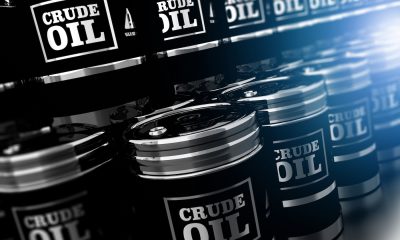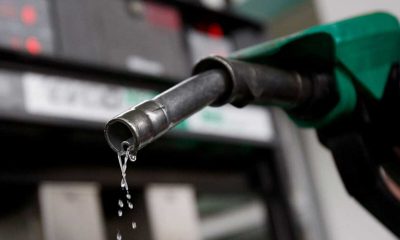Business
FG directs IOCs to offer Dangote refinery crude oil
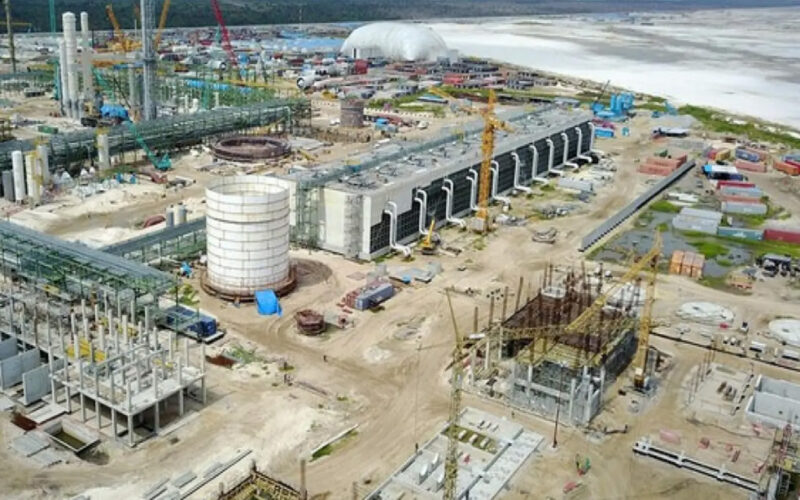
FG directs IOCs to offer Dangote refinery crude oil
The Nigerian Upstream Petroleum Regulatory Commission has said it would mandate international oil companies to supply crude oil to Dangote oil refinery.
The spokesperson for the NUPRC, Olaide Shonola, said the commission was intervening to ensure the local sale of crude to Dangote and other refineries in the country.
Shonola stated this while reacting to a claim by the Chairman of the Dangote Group that the international oil companies were not ready to sell crude to the refinery.
In an interview with The PUNCH on Tuesday, Shonola said the NUPRC would mandate the IOCs to sell to the Dangote refinery, with clear directives that this must be done.
“We’ve been intervening and intervening. I am sure you’re aware of a recent meeting that was held with them on domestic crude oil supply. We will keep engaging them, NUPRC has been doing that.
“I can’t say we will force them, but as the regulator, we can mandate. And that’s what we are doing, giving clear directives that this must be done. We will just keep on engaging and you will agree with me that most of these things have to be planned. We will keep on engaging. We will do our regulatory function in that area,” she stated.
Asked whether there would be sanctions, Shinola declined comments.
READ ALSO:
- Why we named Abuja road after Wole Soyinka – Wike
- Railway Property Company unveils 10-year development programme
- Works minister speaks on vandalisation of 2nd Niger Bridge
“We will mandate them, as in, give clear directives based on our regulatory functions,” she emphasised.
In an interview with CNN, Aliko Dangote said international oil companies in Nigeria were not ready to sell crude oil to the 650,000 barrels capacity oil refinery.
According to him, the international oil companies were used to exporting crude for foreign exchange and they were not ready to stop.
Dangote said though the Nigerian National Petroleum Company Ltd was doing its best to supply feedstock to the refinery, the IOCs wanted to sell outside the country.
“The NNPC is doing its best, but some of the IOCs, they are struggling to give us crude, everybody is used to exporting and nobody wants to stop exporting,” he stated.
The business mogul said Africa was not growing because it sells raw materials to the Western world and buys the same as finished goods.
“Africa is not going the way it should because we export raw materials and import finished goods. It doesn’t matter what it is, even if it is gold or whatever, raw material is always priced at a ridiculous amount compared to finished goods,” Dangote said.
He regretted that some individuals benefitting from oil import did not want the refinery to succeed.
Dangote disclosed that the refinery would take about 21 million barrels of crude oil from Nigeria every month, adding that 21 ships of crude would no longer import or export oil into Africa
“Almost 21 ships will no longer leave the African continent, either from Nigeria or Angola, we will be able to take those crudes and be able to refine and distribute the product. I feel very proud as an African that we have been able to demonstrate that it can be done, and we’ve done it.
“If we take all the crudes from Nigeria, it means we will take 21 million barrels per month and that will also help in terms of reducing the C02 emissions. Rather than ships coming from Europe to bring in products, or the ships going out of Nigeria, 21 ships going out of Nigeria every month, and then you have the product coming into Nigeria. In totality, when you calculate, you are talking about 480 ships of 1 million barrels,” he noted.
In April, the NUPRC issued a new rule requiring oil producers to sell crude to domestic refineries before attending to foreign demands.
It appears the IOCs are not obeying this directive.
FG directs IOCs to offer Dangote refinery crude oil
PUNCH
Business
MTN, Airtel to share network infrastructure in Nigeria
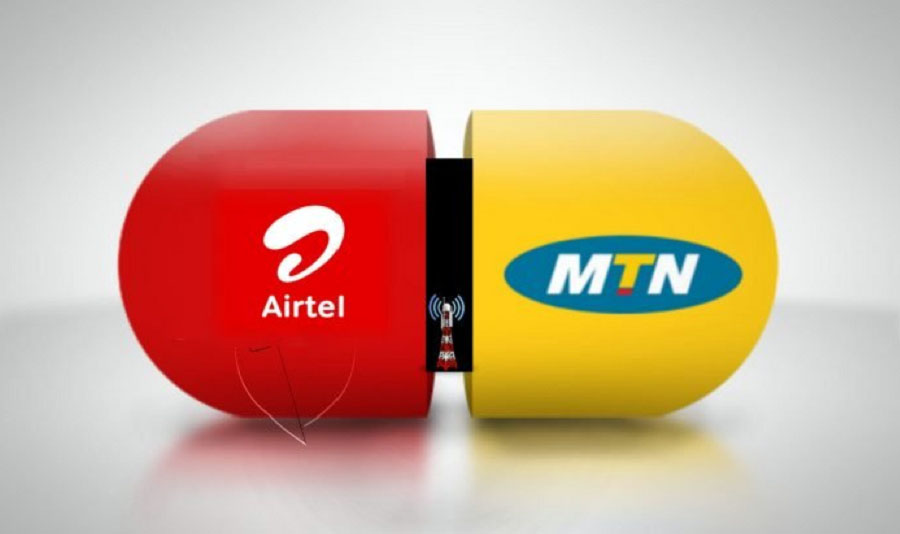
MTN, Airtel to share network infrastructure in Nigeria
Airtel Africa has partnered with MTN Group to expand digital inclusion by sharing network infrastructure in Uganda and Nigeria.
In a statement in Lagos on Wednesday, Airtel said the sharing agreements aim to improve network cost efficiencies, expand coverage, and provide enhanced mobile services to millions of customers.
A sharing agreement is a formal arrangement between two or more parties to share resources, assets, or services.
According to the telecommunications company, the partnership will benefit customers in remote and rural areas who do not yet fully enjoy the benefits of a modern connected life.
Airtel assured that both parties will ensure the agreement complied with local regulatory and statutory requirements.
Sunil Taldar, chief executive officer (CEO) of Airtel Africa, said telecommunications companies are driving digital financial inclusion by building common infrastructure within the regulatory framework.
Taldar noted that the collaborative approach not only advances digital transformation and financial inclusion but also reduces the duplication of expensive infrastructure.
READ ALSO:
- Kogi group seeking Senator Natasha’s recall not registered – CAC
- Obasanjo’s position on Rivers emergency rule hypocritical, says Presidency
- Bill to stop politicians above 60 from contesting presidential, gov poll scales 2nd reading in Reps
As a result, Taldar said operational efficiencies are boosted, ultimately benefiting customers.
He further said telecoms continue to compete fiercely in the market, differentiating themselves through their brand, services, and offerings.
“The initiative is part of a growing global trend toward network sharing. By collaborating, telecoms operators can explore innovative and pro-competitive solutions to improve service quality while managing costs more effectively,” Taldar said.
“The sharing of infrastructure has the potential to enable the delivery of world-class, reliable mobile services to more and more customers across Africa.”
Taldar added that following the conclusion of agreements in Uganda and Nigeria, MTN and Airtel Africa are also exploring various opportunities in other markets, including Congo-Brazzaville, Rwanda, and Zambia.
Ralph Mupita, MTN Group CEO, said there is a need to invest in coverage and capacity to ensure high-quality connectivity to meet customers’ increasing demands.
“As MTN, we are driven by the vision of delivering digital solutions that drive Africa’s progress,” Mupita said.
“We continue to see strong structural demand for digital and financial services across our markets.
“To meet this demand, we continue to invest in coverage and capacity to ensure high-quality connectivity for our customers.”
Mupita added that there are opportunities within regulatory frameworks for sharing resources to drive higher efficiencies and improve returns.
MTN, Airtel to share network infrastructure in Nigeria
Business
NNPCL in historic initial public offer, ready for capital market
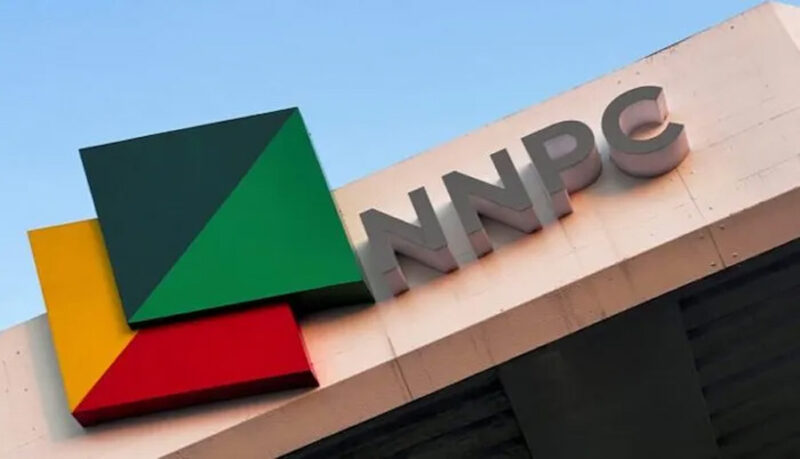
NNPCL in historic initial public offer, ready for capital market
The Nigerian National Petroleum Company Limited (NNPCL) has announced that it is in the final stages of preparation for its much-anticipated listing on the capital market, in line with the provisions of the Petroleum Industry Act (PIA) 2021.
The company’s Chief Corporate Communications Officer, Olufemi Soneye, disclosed this in a statement on Thursday in Abuja.
According to the statement, the Chief Finance and Investor Relations Officer, Olugbenga Oluwaniyi, revealed the development during a consultative meeting with partners at the NNPC headquarters.
READ ALSO:
- Kogi group seeking Senator Natasha’s recall not registered – CAC
- Obasanjo’s position on Rivers emergency rule hypocritical, says Presidency
- Bill to stop politicians above 60 from contesting presidential, gov poll scales 2nd reading in Reps
He stated that NNPCL is currently engaging with potential investors through an exercise called the “NNPC Ltd. IPO Beauty Parade,” which aligns with capital market regulations ahead of its Initial Public Offer (IPO).
“According to the CFIO, the aim of the IPO Beauty Parade is to access potential partners and determine in what ways they could be of support to the company,” the statement explained.
The statement further highlighted that NNPCL is seeking partnerships in three key areas: Investor Relations, IPO Readiness Advisors, and Investment Banking Partners. Companies with the most competitive offers will be selected for each category.
An IPO is a public offering in which a company’s shares are sold to institutional investors. Under the PIA, NNPCL is required to list its shares on the capital market in compliance with the Companies and Allied Matters Act (CAMA) 1990.
NNPCL in historic initial public offer, ready for capital market
Business
Naira rises to N1,560/$ in parallel market

Naira rises to N1,560/$ in parallel market
The Naira yesterday appreciated to N1, 560 per dollar in the parallel market from N1,570 per dollar on Wednesday. But the Naira depreciated to N1,540 per dollar in the Nigerian Foreign Exchange Market (NFEM).
Data published by the Central Bank of Nigeria, CBN, showed that the indicative exchange rate for the naira rose to N1,540 per dollar from N1,539 per dollar on Wednesday, indicating N1 depreciation for the naira.
READ ALSO:
- How Wande Abimbola rejected IBB’s ING bait, and other stories (2)
- FG declares public holidays for Eid-el-Fitr
- JUST-IN: Ex-Oyo gov Ajimobi’s first child Bisola dies At 42
Naira rises to N1,560/$ in parallel market
-

 metro1 day ago
metro1 day agoRivers administrator Ibas fires Fubara’s political appointees
-

 metro1 day ago
metro1 day agoJUST-IN: Ex-Oyo gov Ajimobi’s first child Bisola dies At 42
-

 International2 days ago
International2 days agoCanada removes bonus ranking points for job offers in Express Entry system
-

 metro2 days ago
metro2 days agoHow ritualists, native doctor drugged, murdered underage sisters in PH – Police
-

 metro1 day ago
metro1 day agoFG declares public holidays for Eid-el-Fitr
-

 Sports2 days ago
Sports2 days agoNigeria’s Super Eagles falter in W’Cup qualifiers against Zimbabwe, S’Africa lead, Egypt, Morocco qualify
-

 metro2 days ago
metro2 days agoAkpabio has habit of abusing women, says Atiku
-

 Africa1 day ago
Africa1 day agoNiger coup leader sworn in as president for five years



